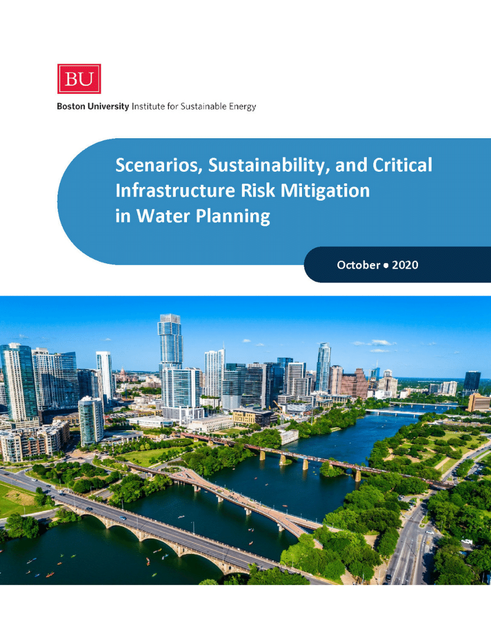Sustainable Water Planning: Risk Mitigation Based on Critical Infrastructure Analysis
The growth in uncertainties from multiple sources calls for revamped water planning approaches and processes designed to better prepare for less predictable outcomes, including the incorporation of scenario planning that accounts for critical infrastructure interdependencies. In our research brief, Scenarios, Sustainability, and Critical Infrastructure Risk Mitigation in Water Planning, the Boston University Institute for Sustainable Energy’s findings include:
- Capturing the qualitative risks and opportunities of uncertainty through scenario planning has become increasingly important to assess the robustness of quantitative analysis in state, city, and utility water planning for the coming decades.
- Paramount to planning are critical infrastructure interdependencies in the water-energy nexus to coordinate individual plans and challenges relating to supply, allocation, decision-making, and safety and security, especially during disruptive events. The ISE recommends implementing a new framework for planning that evaluates essential service interdependencies and how they overlap.
- Case example: The city of Austin, Texas’s recent 100-year water plan is a breakout contribution to contemporary water strategy and supply planning.
Read the ISE’s full review paper, Water Planning in an Age of Change, for an in-depth look at current water planning methodologies in the U.S. at the federal, state, and local levels; water planning under uncertainty; scenario planning; and critical infrastructure interdependencies.
Authored by David Jermain, ISE Senior Fellow.
This work was carried out as part of a broad initiative on One Water opportunities in Texas funded by the Cynthia and George Mitchell Foundation.

